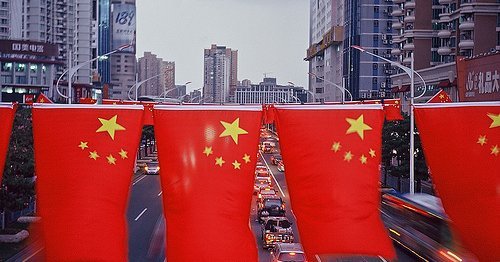In the post-Mao era, under pragmatic leaders such as Deng Xiaoping and Jiang Zemin, China has moderated itself ideologically, opened up to the world, liberalized its economy, opened the doors to foreign investment and is undergoing rapid economic transformation. It is the world’s third largest economy. However, while there is economic liberalization, political authoritarianism remains and the situation shows no chance of changing in the near future. China continues to develop very fast and by 2040, its Gross Domestic Product is expected to overcome that of the United States. The people’s lives have become better economically although there is still a long way to go.
While there is economic liberalization, political authoritarianism remains and the situation shows no chance of changing in the near future.
However, one still does not forget the bloody events of 1989 in Tiananmen Square. People still haven’t forgotten Zhao Ziyang. Moreover, there have been very recent events such as the Tibetan protests during the opening of the Olympic Games in Beijing and the latest ethnic tensions in Xinjiang Uighur Autonomous Region. These last two events have again uncovered the harsh truth in China. This harsh truth consists of the Communist Government’s policy of ethnic discrimination in favour of Han Chinese against other ethnic minorities. The Tibet protests, the influence of the Dalai Lama and the unrest in Xinjiang throws a bad light on the Communist Government. World governments should continue reminding the Communist government that it is breaching human rights since human rights have no boundaries. The Communist government has always followed a policy of favouring the Han Chinese immigration and culture in both Tibet and Xinjiang at the expense of the minority cultures and people. On their part, the Chinese leaders should allow cultural and religious self-expression to its national minorities.
Also, China must ensure that the massive wealth created by its rapidly-expanding economy is distributed fairly among its 1.3 billion people. That is also another future challenge for China and when the current Chinese President Hu Jintao took over as President of China in 2003, he stressed the need to reach out to the poorer provinces of China in order to fight poverty. This is because most of the country’s is generated in the coastal areas and it remains in those areas while the inland provinces receive a trickle of that wealth. Hu Jintao is already making efforts in the right direction and hopefully the situation will be better and Chinese would benefit from a general increase in their standard of living.
Another future challenge for China and its leaders is the global phenomenon of climate change. It is true that China is the fourth-largest wind energy producer in the world but it still relies on coal for the majority of its energy supplies. China is one of the most polluting countries of the world. The Chinese must increase its investment in renewable sources of energy such as wind, solar and even hydro-electric power. This is for the benefit of the Chinese and more importantly, to the whole world. The world needs the help of countries like China to combat this global problem. China can do more only of it has the will to do so and is sending encouraging messages that it wants to tackle its high greenhouse emissions.
Another area China should tackle in the future is its foreign policy especially North Korea. What is China going to do regarding North Korea? Should it take a harder line on North Korea? North Korea is threatening a whole region and China can help a lot to control the North’s irresponsible behaviour. This is another challenge that China has to take up in the near future in the interest of the whole region.
China has liberalized economically but politically, the Mao’s ghost still haunts Chinese leaders. However, the future still offers plenty of challenges such as democratisation, reducing greenhouse emissions, tackling North Korea and improving the well-being of its 1.3 billion people.

Follow the comments: |
|
